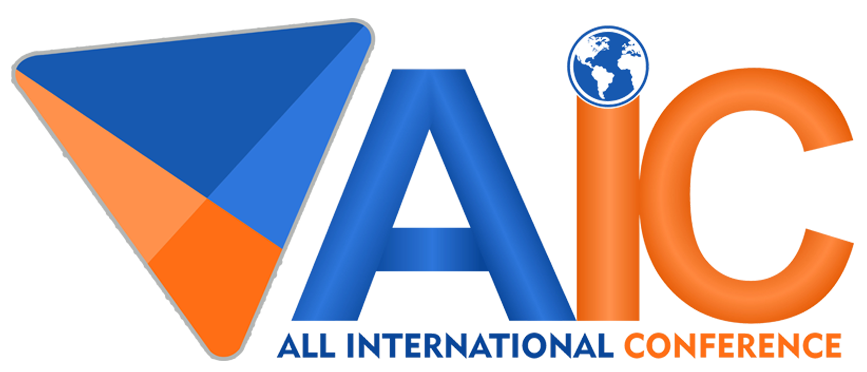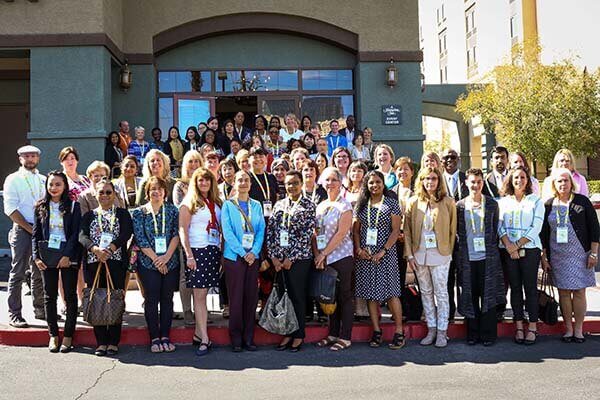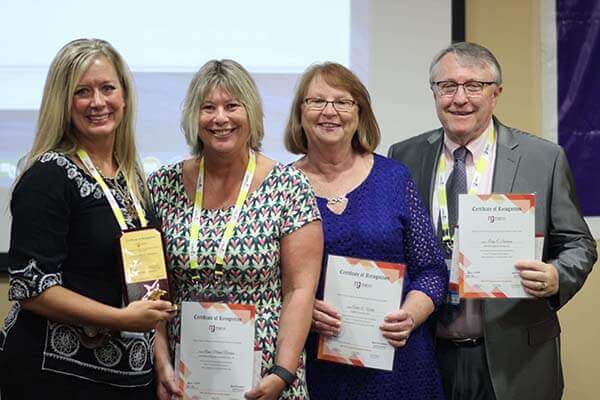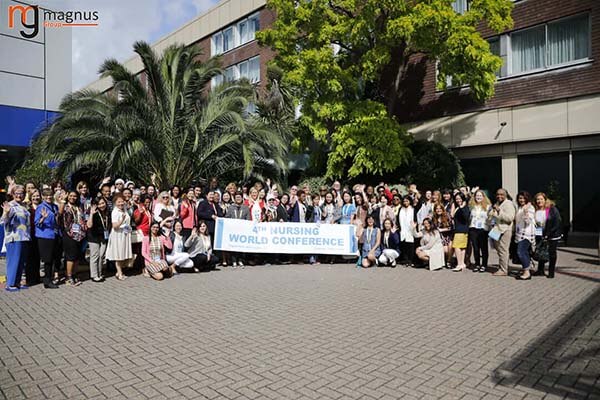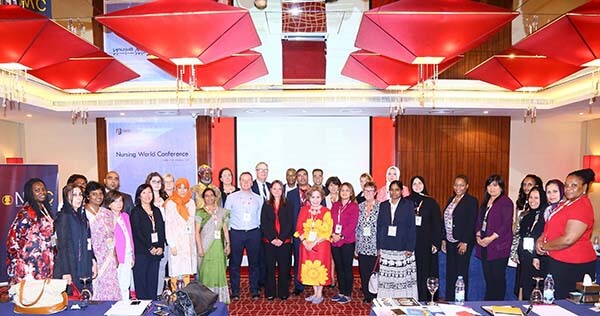About GASTRO 2026 | Hybrid Event
Discover new horizons in digestive health at the 2nd Edition of International Conference on Gastroenterology, taking place September 24-26, 2026 at London, UK and online. Gastro 2026 creates a hybrid platform for professionals to engage, collaborate, and exchange fresh perspectives in the field. The conference will focus on "Global Perspectives in Gastroenterology: Innovation to Impact ", highlighting key areas of interest and current advancements.
Gastro 2026 brings together gastroenterologists, hepatologists, clinical researchers, academicians, and healthcare practitioners. Participants can interact with peers, share experiences, and build connections that support professional growth and innovation.
The event will feature research presentations, interactive workshops, and discussion sessions designed to encourage collaboration and practical knowledge sharing. Attendees can explore new techniques, innovative approaches, and evolving practices that address challenges in gastroenterology.
We look forward to uniting experts and participants at Gastro 2026 to foster collaboration, advance expertise, and inspire progress in digestive health care worldwide. Together, we will explore innovative solutions and shape the future of gastrointestinal medicine.
Recommended: Gastroenterology Conferences 2026 | GI Conferences 2026 | Hepatology Congress | Hepatology Conferences 2026 | Digestive Diseases Events | GI Meetings 2026 | Gastrointestinal Diseases Congress | Gastrointestinal Disorders Events
SIGN UP FOR UPDATES
Get news, updates, and more from the Conference.
Past Conference Information
Upcoming Conferences:
| Conference Name | Dates | Venue |
| 7th Edition of Euro-Global Conference on Pediatrics and Neonatology | September 28-30, 2026 | London,UK |
| 3rd Edition of Global Conference on Gynecology & Women's Health | September 28-30, 2026 | London,UK |
| 2nd Edition of International Conference on Gastroenterology | September 24-26, 2026 | London,UK |
International Conference on Gastroenterology 2023 Report:
Magnus Group proudly presents the "International Conference on Gastroenterology" (Gastro 2023) to be held virtually on April 20-22, 2023. This conference promises to bring together gastroenterology professionals from around the world to discuss and deliberate on the latest advancements, emerging trends, and challenges in the field of gastroenterology.
The conference theme " Gastroenterology: A view through the scope" will feature a diverse range of topics, including Gastrointestinal Disorders, Digestive Diseases, Colorectal Cancer, Endoscopic Innovations, Gastrointestinal Surgery, Nutritional Management, Pediatric Gastroenterology, and much more.
Access the Gastro 2023 Final Program
View the Gastro 2023 Abstract Book
The conference program includes classroom speakers, exhibitors, and poster presentations, covering various aspects of gastroenterology, ranging from basic research to clinical practice. The event aims to foster collaboration and inspire the development of new strategies for the prevention and treatment of gastrointestinal diseases.
Magnus Group expresses its gratitude to the Organizing Committee Members, Keynote Speakers, and Speakers for their valuable contributions in making the plenary sessions, workshops, and special sessions informative and comprehensive, thus making the conference a highly distinguished summit.
Recommended: Gastroenterology Conferences 2026 | GI Conferences 2026 | Hepatology Congress | Hepatology Conferences 2026 | Digestive Diseases Events | GI Meetings 2026 | Gastrointestinal Diseases Congress | Gastrointestinal Disorders Events
Gastro 2023: Keynote Presentations:
Maria Isabel Torres Lopez from University of Jaen, Spain
Orestis Ioannidis from Aristotle University of Thessaloniki, Greece
Gastro 2023: Oral Presentations:
Lorenzo Ricolfi from Medical Clinic in Bordighera, Italy
Saliha Moutaharrik from Università degli Studi di Milano, Italy
Zhang Jie from Chongqing Medical University, China
Pojsakorn Danpanichkul from Chiang Mai University, Thailand
Xueping Huang from Fujian Provincial Hospital, China
Zhu Jing from Chongqing Medical University, China
Yu You Liu from National Chung Hsing University, Taiwan
Honggang Yu from Renmin Hospital of Wuhan University, China
Gilles R G Monif from University of Florida, United States
Bibek Karki from Hurley Medical Center/MSU, United States
Brandon Lucke Wold from University of Florida, United States
Seung Oe Lim from Purdue University, United States
Ru Chen from Baylor College Of Medicine, United States
Ana Faustino from University of Evora, Portugal
Akshay Bavikatte Prasannakumar from SLP Fellow Harvard Medical School, India
Muhammad Bilal Akbar from Dr.Grays Hospital NHS Grampian, United Kingdom
Tonia Luca from University of Catania, Italy
Ihar Ihnatovich from Belarusian State Medical University, Belarus
Tracy E Hill from MGS Products LLC, United States
Ashfaq Chandio from Luton & Dunstable University Hospital, United Kingdom
Rodrigo Cristofoletti from University of Florida, United States
Orestis Ioannidis from Aristotle University of Thessaloniki, Greece
Jiayu He from Fudan University, China
Junwei Zhang from Peking Union Medical College Hospital, China
Lekshmi R Nath from Amrita School of Pharmacy & Amrita Vishwa Vidyapeetham, India
Yangkun Guo from Sichuan University, China
Pinghong Zhou from Fudan University, China
Sayan Bhattacharyya from AIIH&PH, India
Ying Yang from Key Laboratory for Diagnosis and Treatment of Infectious Diseases, China
Amr Kassem from Gastrointestinal Surgery Center& Mansoura University, Egypt
Ravi Kant Avvari from NIT Rourkela, India
Shrirang Kulkarni from Army Hospital Research and Referral, India
Mai El Sayed Ghoneim from University of Sadat City, Egypt
Kakil Rasul from National Center for Cancer Care and Research, Qatar
Bilal El-Mansoury from Chouaib Doukkali University, Morocco
Abeer Babiker Idris from University of Khartoum, Sudan
Ahmad Mustafa Rahimi from Alberoni University- School of Medicine, Afghanistan
Meysam Shirzad from Tehran University of Medical Sciences, Iran
Gastro 2023: Poster Presentations:
Haruhiro Shiraishi from The University of Tokyo, Japan
Maria Kim C Hernandez from Dr. Paulino J. Garcia Memorial Research and Medical Center, Philippines
Vesri Yoga from PAPDI, Indonesia
Walaa Abdullah Alshaia from Columbia University, United States
Hanaa Ali Saeed Alghamdi from University of Jeddah, Saudi Arabia
Natalia Rodriguez Martino from Internal Medicine Residency Saint Luke’s Episcopal Hospital, Puerto Rico
Milaris M Sánchez Cordero from Mayaguez Medical Center, Puerto Rico
Noor Ul Ain from The Jewish Hospital of Cincinatti, United States
Gowthami Sai Kogilathota Jagirdhar from Saint Michael’s Medical Center, United States
Waleed Mujib from Rutgers Newark, United States
Allyson T Fonte from Seres Therapeutics, United States
Ana M Barragan from Universidad del Rosario, Colombia
Mandaik Moussa Ahmed from H. Seddik Mohammed V Military Hospital, Morocco
Matthew L Vincent from Mayo Clinic, United States
Alyssa Woodward from University of Nevada Reno School of Medicine, United States
Olga Rashina from Belgorod State University, Russian Federation
Mikhail Churnosov from Belgorod State University, Russian Federation
Kenza Bakkali from Chu ibn rochd Casablanca, Morocco
Mahmoud Moahmed Elalfy Elhefnawy from Mansoura University, Egypt
Yamini Katamreddy from West Anaheim Medical Center, United States
Recommended: Gastroenterology Conferences 2026 | GI Conferences 2026 | Hepatology Congress | Hepatology Conferences 2026 | Digestive Diseases Events | GI Meetings 2026 | Gastrointestinal Diseases Congress | Gastrointestinal Disorders Events
Upcoming Gastroenterology Conference:
Conference Name: "8th Edition of Euro-Global Conference on Pediatrics and Neonatology" (Hybrid Event)
Dates: ber 18-20, 2026
Venue: London,UK
Conference Name: "4th Edition of Global Conference on Gynecology & Women's Health" (Hybrid Event)
Dates: September 28-30, 2026
Venue: London,UK
Conference Name: "2nd Edition of International Conference on Gastroenterology" (Hybrid Event)
Dates: September 24-26, 2026
Venue: London, UK
For Magnus Group Conferences Reviews:
Magnus Group Gastro Conference Reviews | Magnus Conferences Reviews
Conference Schedule
Registration
Opening Ceremony and Introduction
Keynote Session I
Refreshment Break
Keynote Presentation II
Lunch
Break Out Session I
Refreshment Break
Break Out Session II
Keynote Session III
Refreshment Break
Break Out Session III
Lunch
Poster Presentations
Refreshment Break
Break Out Session IV
Keynote Session IV
Refreshment Break
Break Out Session V
Lunch
Break Out Session VI
End Note Session and Closing Ceremony
Watch Past Conference Review
Photo Gallery (Our Past Events)
Testimonials

The conference was organized very well. I very much appreciated the fact that speakers were kept on time. I enjoyed the sessions.
Londia L. Goff West Virginia University Hospitals, USA
I did thoroughly enjoy the Conference. It was a refreshing and inspiring meeting for me to hear about so much Nursing research being done
Cynthia Pantel Health Science Centre Winnipeg , USA
I did enjoy meeting so many people from different countries with great ideas
Anne-Maria Olphert Lincolnshire Partnership Foundation Trust, UK
Thank you!! I really enjoyed presenting and it looks like my presentation impacted people- thank you for a great time-slot
Natalia Cineas Mount Sinai St. Luke’s, USA
Thanks for giving me the opportunity to present in NWC conference on 2019 at London. The conference was well organised. Congratulations and best wishes for the future endeavours.
Sathiyalatha Sarathi Sree Balaji College of Nursing, India
Thank you! We are enjoying the conference!
Tracey Wilson University of Maryland, USA
Blerina and me (Irena), wanted to thank you very much indeed for giving us opportunity to be active part of NWC in London last week.
We meet many friends and colleagues from other countries and share with them a lot of experiences, challenges and success of our nursing.
For us it was indeed a unique experience and we really believe in our next cooperation.
Thank you very much and looking forward to be part of other Nursing activities worldwide.
Irena Laska, Blerina Duka Albanian Order of Nurses, Albania
The Conference was really nice! I appreciated
Aretuza Cruz Vieira Albert Einstein Hospital, Brazil
Thank you so much! We really enjoyed your conference!
Emily Cannon Indiana State University, USA
I thoroughly enjoyed the conference and am looking to forward those in the future.
Dennis L.Hargis State College of Florida, Bradenton, FL, USA
It was a good conference. I am most definitely looking forward to the next conference in Florida!
Angela Cruz West Texas Veteran Affairs Healthcare System, USA
Thank you for a great conference and using me as a Moderator.
Denise Rhew Cone Health, USA
The London conference was great. I enjoyed being a part of the great event.
Patricia A. Seabrooks Miami Regional University, USA
The 2016 went very well and hope to see more attendees next year in Las Vegas, USA. Food was great, nutritious and abundant including the pre-conference dinner. Thanks for the invite. Official and unofficial cameras were plenty.
Rose E. Constantino University of Pittsburgh, USA
It was an excellent conference and I am honoured to have been a part of it. One of the best I have been to.
Renee Bauer Indiana State University, USA
It’s a great privilege to be able to participate this prestigious NWC conference. I’ve learned a lot of different aspect of world healthcare. Thank you for giving me this opportunity.
Elvessa Narvasa Canadian Council of Cardiovascular Nurses Montreal, Canada

The conference was simple fantastic. The topics, speakers, and especially the sharing with nurses and healthcare workers from around the world.
Mary Nielsen Missoula College University of Montana, USA
Thank you very much indeed for giving us opportunity to be active part of NWC in London. We meet many friends and colleagues from other countries and share with them a lot of experiences, challenges and success of our nursing.Thank you very much and looking forward to be part of other Nursing activities worldwide.
Irena Laska Albanian Order of Nurses, Albania
I was pleased to be in Dubai to present my research and I appreciate being invited to the Nursing World Conference 2016. The atmosphere was permissive and friendly. It will be my pleaser to continue to be engaged with the NWC 2017.
Vedrana Vejzovic Malmo University, Sweden
The NWC was a great experience and did get a lot out of it.
Sandra Almeida Auckland City Hospital, New Zealand
The conference was organized very well. I very much appreciated the fact that speakers were kept on time. I enjoyed the sessions.
Londia L. Goff West Virginia University Hospitals, USA
I did thoroughly enjoy the Conference. It was a refreshing and inspiring meeting for me to hear about so much Nursing research being done
Cynthia Pantel Health Science Centre Winnipeg , USA
I did enjoy meeting so many people from different countries with great ideas
Anne-Maria Olphert Lincolnshire Partnership Foundation Trust, UK
Thank you!! I really enjoyed presenting and it looks like my presentation impacted people- thank you for a great time-slot
Natalia Cineas Mount Sinai St. Luke’s, USA
Thanks for giving me the opportunity to present in NWC conference on 2019 at London. The conference was well organised. Congratulations and best wishes for the future endeavours.
Sathiyalatha Sarathi Sree Balaji College of Nursing, India
Thank you! We are enjoying the conference!
Tracey Wilson University of Maryland, USASUBSCRIBE
Stay informed on our latest news!Important Alert:
X


